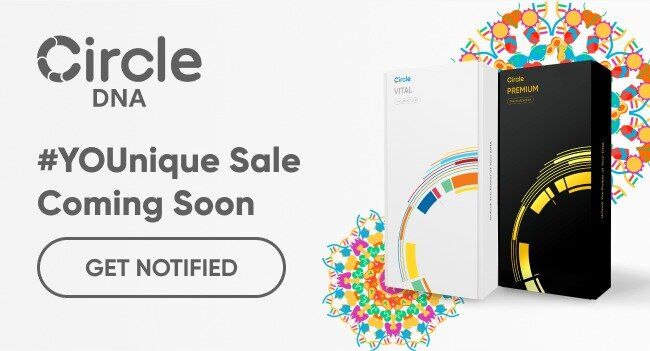
Every year, people around the world join forces during the month of June to celebrate Pride Month. More than anything, Pride Month is a time to embrace, celebrate and honor the diversity of human beings. Pride gives everyone an opportunity to share their true and honest selves with the world, and be accepted for exactly who they are.
Pride month isn’t just a time to add rainbow flags to logos, or take part in fun street festivals. This important annual event is all about uplifting and amplifying LGBTQ+ voices. It’s a time to celebrate how far we’ve come in fostering equality and acceptance, as well as a time to shine a light on how much work still needs to be done.
Crucially, while Pride Month is excellent for providing online education and promoting visibility in the LGBTQ+ community, it’s also a call to arms for allies of the pride movement to show their support. When we all come together to celebrate Pride, we invest in a world built on love, understanding, compassion, authenticity, freedom, and equality.
During Pride Month, it’s common to spread online awareness through educational social media posts and blog posts, to help foster global understanding and acceptance.
What is Pride Month? The History of Pride
Pride Month is a LGTBQ+ celebration held annually during the month of June, to promote the rights of the community, champion equality and enable freedom of expression. The event grew popular following the 1969 Stonewall riots – a crucial point in time for LGBTQ+ individuals.
The Stonewall riots happened during June 1969, when patrons from the Stonewall Inn of New York held an uprising to resist police persecution and harassment.
Before the event, the New York State Liquor Authority were known for shutting down establishments selling alcohol to known or suspected LGBT people. They argued that simply allowing such people to gather in public was “disorderly”.
The uprising marked the beginning of a growing battle to outlaw discrimination against LGBTQ+ Americans. Although many movements for gay rights were introduced in the years prior to the Stonewall Riots (such as the Society for Human Rights in 1924), many struggled to gain traction.
Today, Pride Month still celebrates some of the major figures of the riot, such as:
- Marsha P. Johnson: Credited with throwing the first punch at the Stonewall Inn, Marsha was a black trans woman and a huge figure in the gay community. Unfortunately, she passed away in 1992, and police found her body in the Hudson River.
- Sylvia Rivera: An activist and drag queen well-known for fighting for transgender rights, Sylvia created “STAR”, the Street Transvestite Action Revolutionaries to house LGBTQ+ homeless youths.
- Stormé DeLarverie: A drag performer and gay rights activist who was at the Stonewall when it was raided the first night. Stormé is widely regarded as one of the first women to stand up and fight for the freedoms of the LGBTQ+ community alongside Marsha and Sylvia.

Why is Pride Month So Important?
Every year, Pride Month reminds us of the importance of ensuring everyone in the world can survive and thrive as their unique selves.
Pride isn’t just important for people within the LGBTQ+ community, it’s part of a much wider movement, designed to change how we think about ourselves and each other, and bring humanity closer together.
Pride Month is a global quest for tolerance, equality, and education, allowing us to move forward towards a world where everyone is truly free.
Pride month is important because:
Pride Month Drives Universal Equality and Spreads Love
We’re all born into the same world and deserve the same opportunities. Penalizing human beings based on things they can’t control, such as sexual orientation, gender, or skin color, creates a world of fear, oppression, and pain.
Pride Month highlights the potential of a brighter tomorrow, where everyone can truly be themselves, without living in fear of hate or violence. Every year, new goals are accomplished and celebrated in the LGBTQ+ environment, and pride is a great way to highlight these achievements, while drawing attention to the targets we still have to reach.
For instance, while we’ve achieved fantastic wins on marriage equality in recent years, there are still 69 countries worldwide with laws making it illegal to be homosexual. Pride helps to create awareness for just how unequal the world can be.
Pride Commemorates Crucial Moments in History
LGBTQ+ history is essential human history. It’s an insight into the tireless battle people have been waging for decades against unfairness and discrimination. As mentioned above, Pride Month commemorates the Stonewall Riots first and foremost, but it’s also a chance to remember and honor everyone who has stood up on behalf of trans rights.
LGBTQ+ events often go beyond parties and festivals, they also include opportunities to learn more about Brenda Howard, who helped to plan the first Liberation Day March near the site of the riots, and Edie Windsor, who was actively involved in making significant changes to gay marriage laws.
As a community, LGBTQ+ people use Pride as an opportunity not just to celebrate themselves, but to pay homage to every figure who has stood up and taken a stance in the fight for equality. Every year, there’s more to be grateful for, from better representation of LGTBQ+ people in the media, to improved policies and legislation around the world.

Allows People to Be Their Authentic Selves
Pride is something we all fundamentally deserve as human beings. In fact, researchers suggest pride is an important part of our survival as human beings. Pride increases self-esteem, gives us the confidence and motivation we need to accomplish our goals, and paves the way for ambition.
Unfortunately, for years, people in the LGBTQ+ community have been ostracized and attacked, to the point where many of these individuals have been forced to hide from their loved ones, and themselves. Pride gives people from all walks of life a chance to feel accepted for who they are.
It’s a chance for those who have felt oppressed in the past to throw off their shackles and be embraced by a community of like-minded, loving, and accepting people.
For many, Pride is a chance to “come out” and admit who they are for the first time and find their community to get them through the process.
It’s not uncommon for people to come out to their friends and family during Pride Month.
Pride is a time where people in the LGBTQ+ community feel a lot of self-love, while also receiving love from their community.
We All Deserve to Be Proud of Who We Are
Pride is a form of freedom. When we’re happy with who we are, we’re much more comfortable in our own skin, and better able to enjoy the world and life in general. Yet an overwhelming need for acceptance often pushes human beings to do whatever they can to fit in with the majority – even if this means disregarding who they truly are.
Pride isn’t just important for the LGBTQ+ community, it’s also an opportunity for us all to remember how important it is to love ourselves for who we really are. The reality is we’re all incredibly similar, and yet wonderfully unique at the same time.
DNA testing shows us that human beings are 99.9% similar, but that .1% is something we all should be proud of. Without the things that make us unique, the world would be full of carbon-copy clones. We wouldn’t have the beauty or creativity we have today, as our greatest accomplishments are inspired by different ways of thinking, and different minds.
Pride reminds us of being different is beautiful, while also showing us how similar we truly are on a base level. We’re all one part of the same incredible species, no matter how different we might appear.
This Pride, be proud to be #YOUnique, and get to know a little more about yourself with CircleDNA, which is a DNA test that can help you discover more about who you are.







